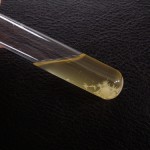U.S. admits conducting STD tests in Guatemala
The government of the United States acknowledged on Friday that American scientists and doctors have conducted experiments during the 1940s that led to Guatemalan soldiers, prisoners and mental patients being infected with sexually-transmitted diseases (STDs).
A physician who was involved in the Tuskegee syphilis study was the research leader of the Guatemalan study conducted from 1946 to 1948, which had 1,500 men and women included in the research population to supposedly determine the effectiveness of penicillin.
The subjects were prostitutes who already had infections or were infected by the scientists by inserting needles on open wounds that could be contaminated with STD microbes.
“Although these events occurred more than 64 years ago, we are outraged that such reprehensible research could have occurred under the guise of public health,” said a joint statement and apology by Secretary of State Hillary Rodham Clinton and Health and Human Services Secretary Kathleen Sebelius.
“We deeply regret that it happened, and we apologize to all the individuals who were affected by such abhorrent research practices,” the statement said.
President Barack Obama had called Guatemalan President Alvaro Colom to “personally express that apology,” said White House spokesman Robert Gibbs.
The Guatemalan government released a statement saying that it “deeply deplores that these experiments affected innocent people.”
Sponsors of the study were the National Institutes of Health, the Public Health Service, the Pan American Health Sanitary Bureau, and the government of Guatemala.
The stated aim of the experiments was to find out if receiving penicillin after a sexual encounter could prevent STD infections.
